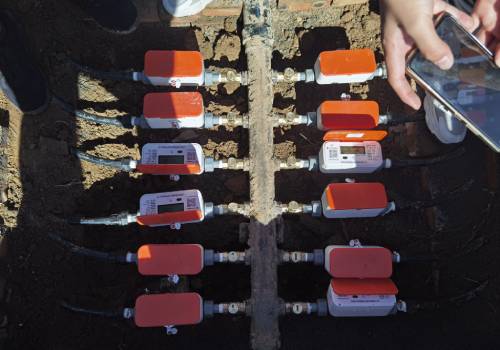
Municipal water meters are often used in the renovation of old communities for several reasons:
1. Improved Water Management:
Water meters provide accurate monitoring of water consumption, allowing municipalities to identify leaks, unaccounted-for water, and excessive usage. This information helps them optimize water distribution and reduce waste.
2. Equitable Billing:
By measuring individual water consumption, meters ensure that residents are charged fairly based on their actual usage. This eliminates disputes and promotes transparency in water billing.
3. Leak Detection:
Smart water meters can detect sudden increases in water flow, indicating possible leaks. Early leak detection helps prevent costly repairs and water damage to homes and infrastructure.
4. Water Conservation:
Meters incentivize water conservation by providing real-time feedback to residents on their usage. This encourages them to reduce their consumption, leading to overall water savings.
5. System Upgrades:
During community renovations, water meters are often installed as part of system upgrades. This modernizes the water infrastructure, providing more efficient and reliable water delivery.
6. Reduced Operating Costs:
Metering automates water billing and reduces manpower requirements for manual meter reading and billing. This can lead to lower operating costs for municipalities.
7. Data for Planning:
Water meter data provides valuable information for long-term water resource planning. Municipalities can analyze consumption patterns, predict future needs, and make informed decisions about water infrastructure investments.
8. Transparent Communication:
Meters promote transparent communication between municipalities and residents. By providing access to their consumption data, residents can make informed choices and actively participate in water conservation efforts.